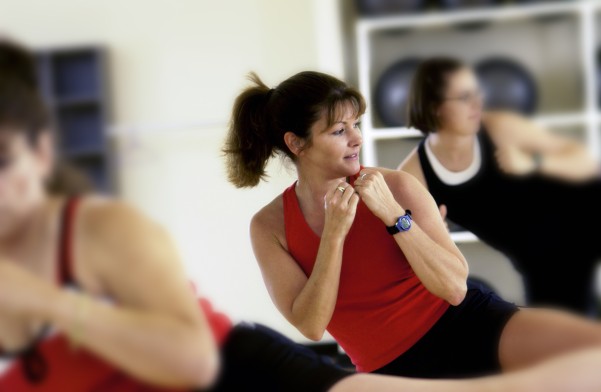After the age of 30, many people notice that they do not have the same metabolism or the same energy levels that they did before. They may also find that they do not have the same eating habits or activities levels as they did when they were younger. Things like working a busy schedule and managing a family can impact these factors.
Outside of this, regular hormone levels change in both males and females as they age. All of these factors impact the shape of the human body. It is important to remember that you can be in good shape after the age of 30 without looking exactly the same as you did years earlier. Following these tips will help you to stay in shape after the age of 30, but it is also important to feel confident in your body. Your body is highly capable and staying in shape is all about feeling your best. It is not about impressing others. There is no one right body type and it is important to keep this in mind when following these health and wellness tips for staying in shape after 30.
Tip #1: Make sure that you are getting adequate hydration each day. In search of energy to complete tasks like work, childcare, home care, and errands, many adults consume energy drinks and coffee drinks throughout the day. In the evenings, many adults over the age of 30 find themselves unwinding more and more often with glasses of beer, wine, or whiskey. Sodas and high sugar sports drinks are tempting and easily accessible. Unfortunately, none of these drinks help to hydrate the human body. It is important to drink enough water each day in order to stay in shape and keep your body functioning correctly. Drinking water helps to clear skin and regulate energy levels. Water also provides an excellent alternative to high sugar, high calorie beverages that have no nutritional value. If water does not have enough flavor for you, you can infuse it with lemon, lime, mint, cucumber slices, strawberry pieces, or any other fruits, veggies, or herbs that you desire.
Tip #2: Limit your intake of processed foods. Processed foods include chips, candy, donuts, snack cakes, and squeeze cheese. Processed foods are often a major source of health detriments like added sugar, added sodium, and trans fats. It is a far better idea to consume minimally processed, whole foods. These foods help to satisfy your appetite and provide adequate nutrition. Processed foods with added sugar and sodium are likely to contribute to weight gain. Whole foods are often less expensive as well. For example, one potato is far less expensive than a large bag of highly processed potato chips but the overall nutritional value of the potato alone is far higher. This tip will help you to stay in shape, but it will also help you to prevent many different kinds of cancer and disease that threaten adults as they get older.
Tip #3: Participate in physical activity for at least thirty minutes per day. As many people get over the age of 30, they find that family obligations rule their day to day lives. If you have a family, it is a great idea to involve your family in group activities like park outings, jogs, or bike rides. This makes it so you do not necessarily need to take time to yourself to exercise. Walking or biking to work is a great way to increase your activity levels as well, if it is possible for you to do so. Increasing your non-exercise activity thermogenesis is a great way to increase your daily calorie burn as well. In fact, this is often the best way to increase your activity levels each day. Having a healthy body fat percentage is especially important as you get older. Whichever method of exercise you prefer, it is important to find something that works for you by the time you reach the age of 30.
Tip #4: Consume adequate amounts of each macronutrient and micronutrient daily. While many adults consume more calories, fat, sodium, and sugar than they should each day, they are lacking in other areas like protein, iron, vitamins, and minerals. Consuming enough protein each day is important for adults, whether they are active are not. Of course it is better to be active, but it is a misconception that only gym rats and body builders need to consider their daily protein intake. A balanced diet should allow you to avoid purchasing expensive supplements in an attempt to make up for low nutrient levels. If you need help with this, it is a good idea to consult with a nutritionist, dietitian, or nutrition coach.
Tip #5: Limit how often you go out to eat. Meals consumed from restaurants, bars, diners, and drive thrus are often extremely processed, greasy, and high in added sugar and sodium. These meals are also expensive and they lack nutritional value. If you have a hard time planning for meals when you are busy, it is a good idea to meal prep ahead of time. Inviting friends and family over to cook for them or to gather for a potluck is a great alternative to eating out when entertaining. This can help you save money in addition to helping you stay in shape. It is also more intimate and allows you to better cater to the tastes, preferences, and allergies of your loved ones.






